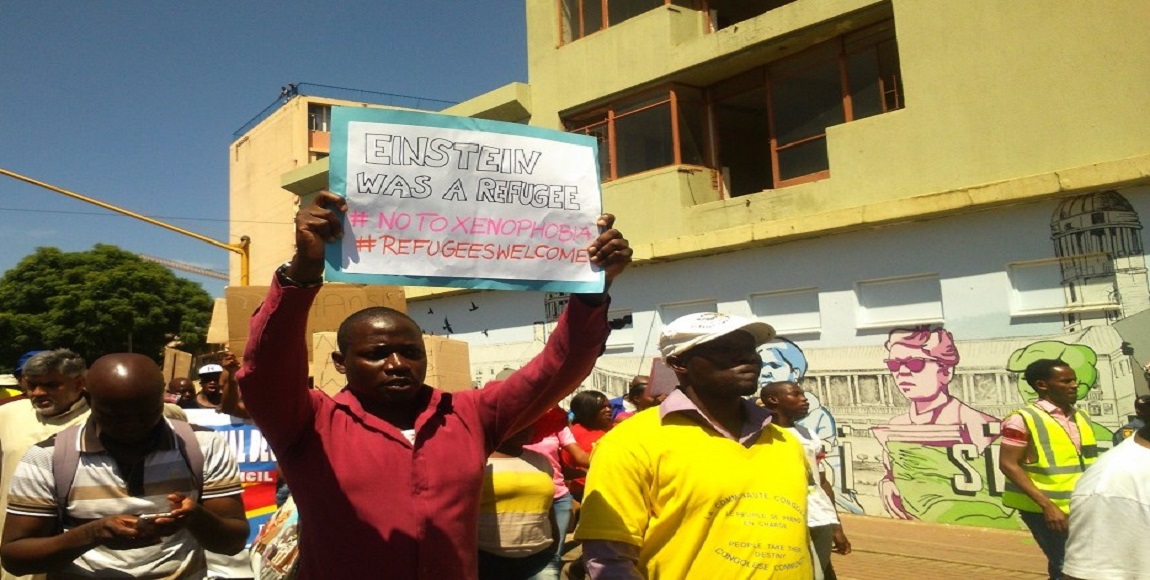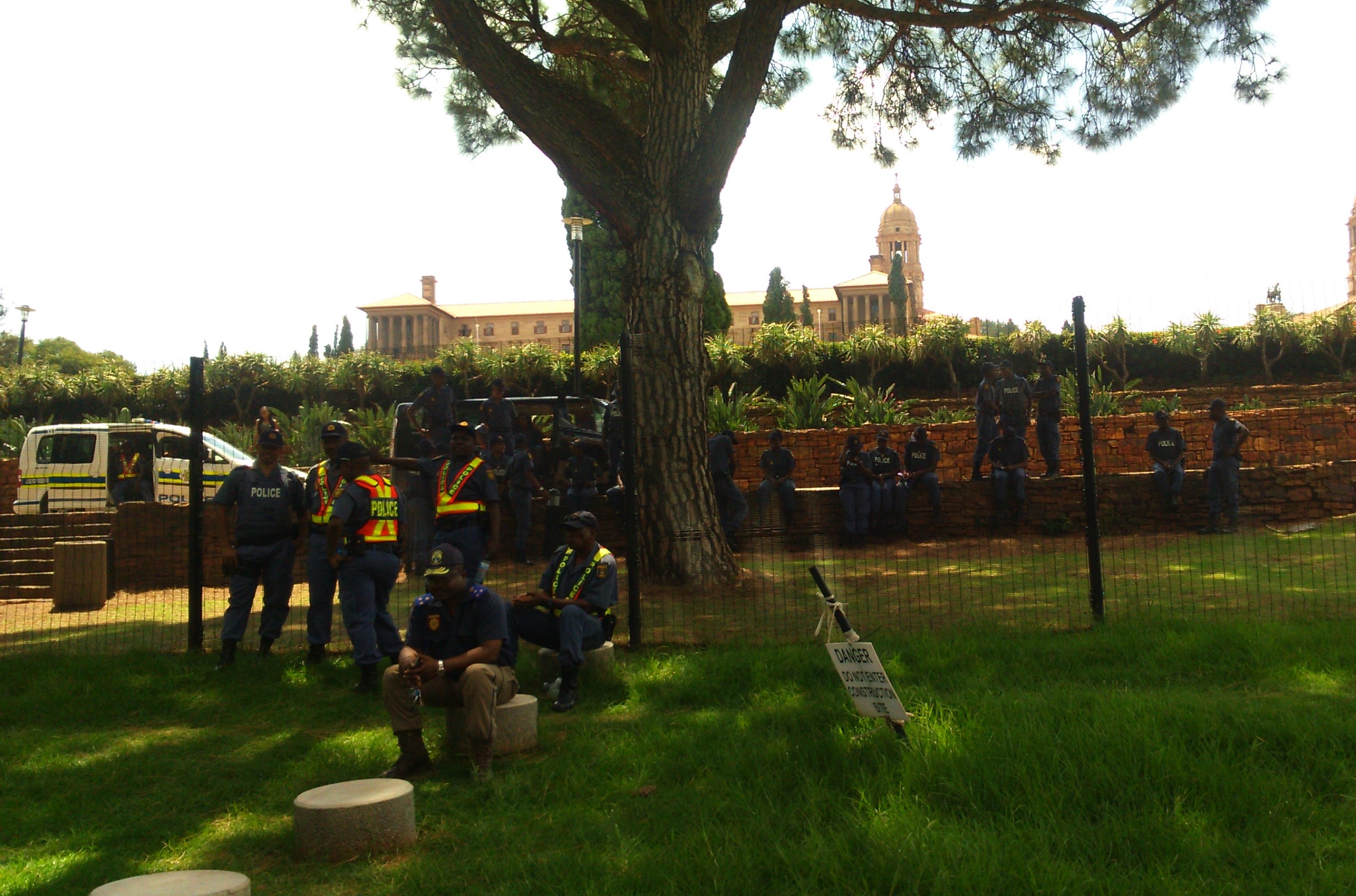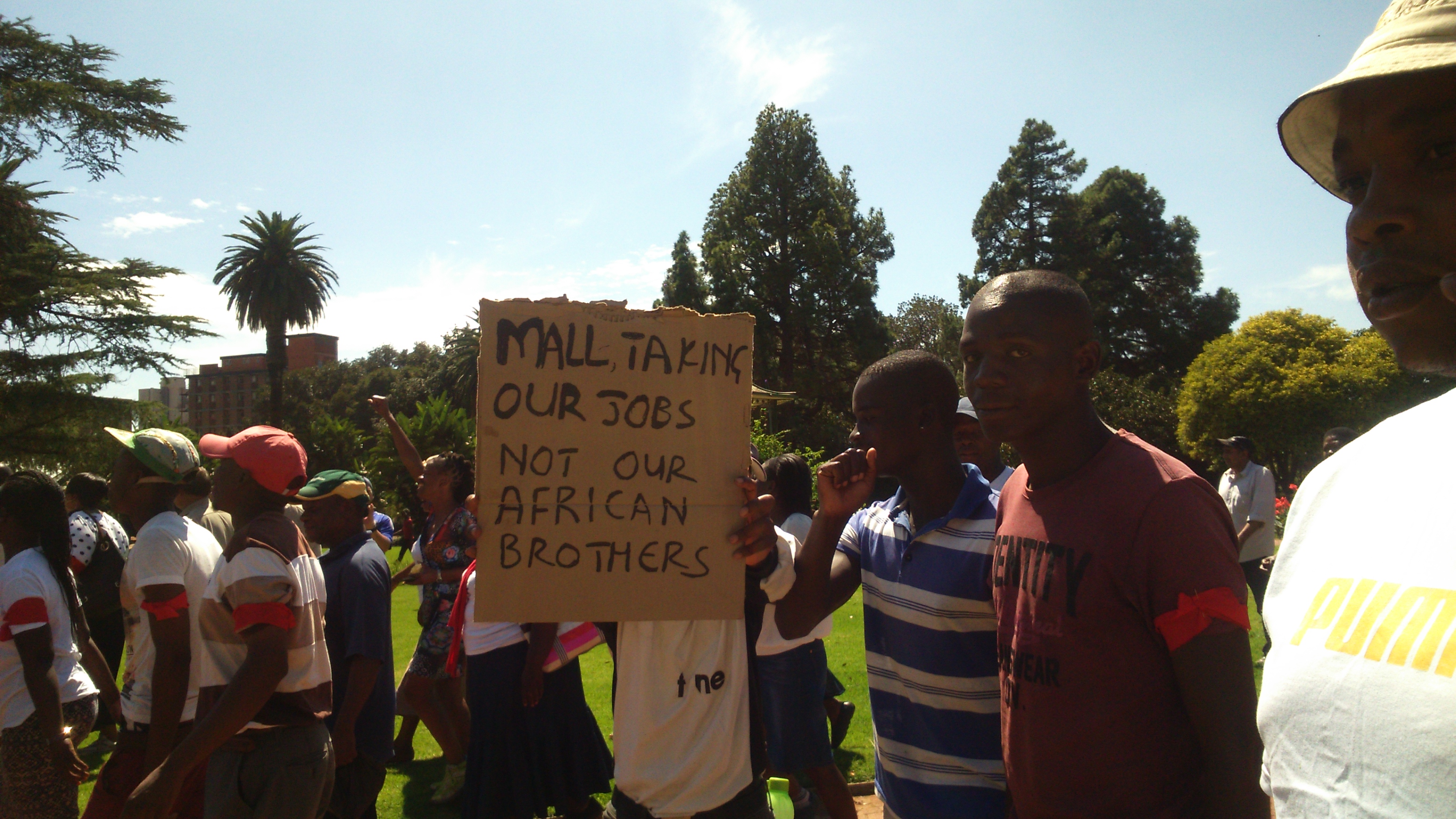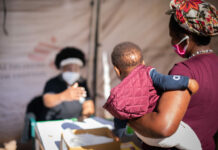“Look, right now what I would say is it’s very fearful to live in South Africa as an immigrant or refugee or a foreign national because first of all how do we cure this issue, how do we finish this xenophobia syndrome?â€
Prince Mpinda, 40, a Congolese resident is frustrated that the South African government is not taking the issue of xenophobia seriously. “[On Wednesday] the president was on Special Assignment on SABC 3. It was very disturbed [sic] to see how the president is defending the Mamelodi Concerned [Residents] to say it was a well-organised march against crime.â€
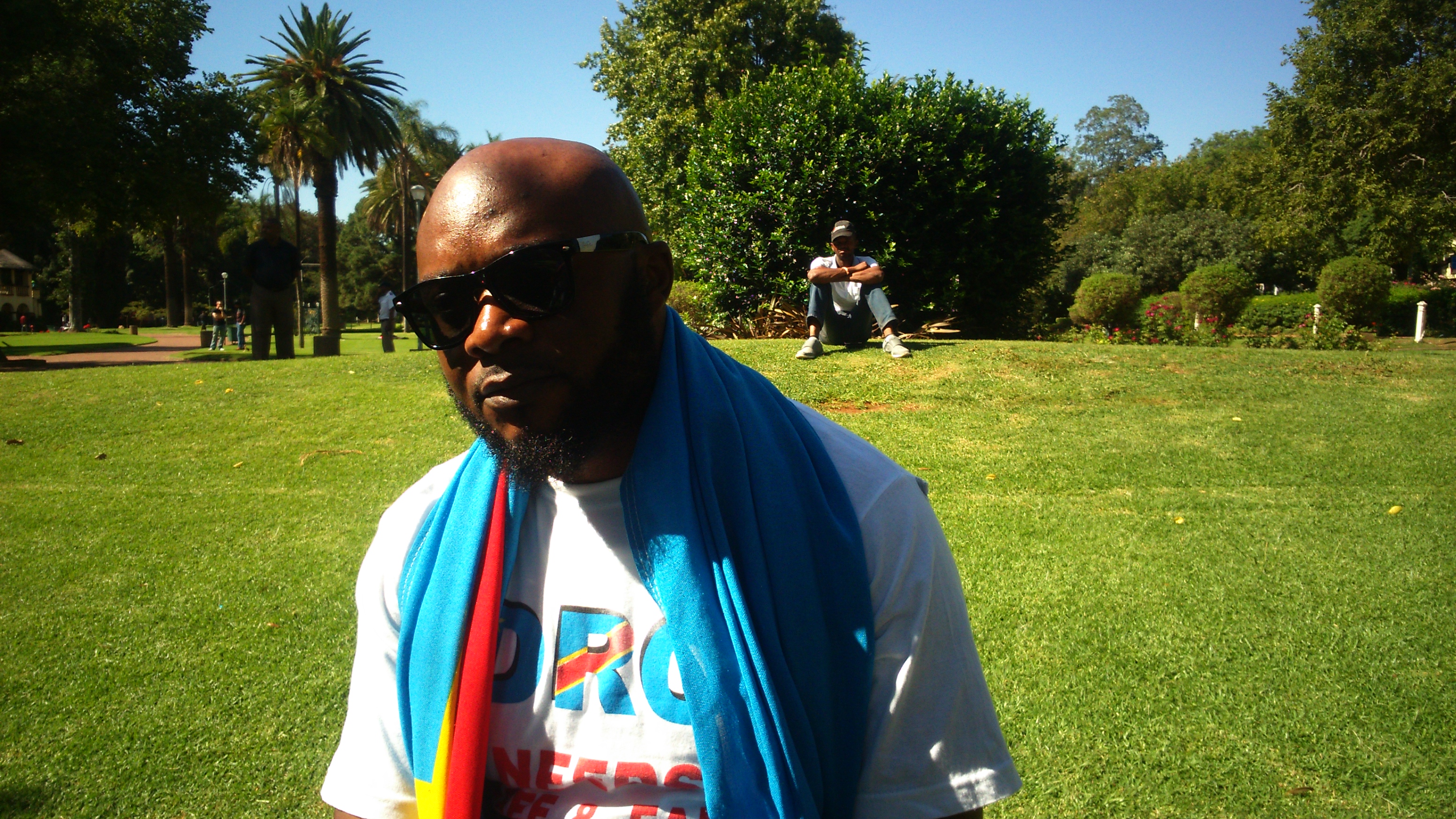
Mpinda is referring to the anti-illegal immigrant march that happened last month in Pretoria. The Mamelodi Concerned Residents had organised the march to protest the scourge of crime, drug trafficking, and prostitution that they believe is caused by the presence of immigrants in South Africa. The march turned violent. Shops owned by immigrants were looted.
The Coalition of Civics Against Xenophobia’s (CCAX) march was against not only xenophobia but also the issues xenophobic people are voicing. “Government should seriously attend to [these] issues… because they seem to be the bone of contention from xenophobic mobs,†said Themba Ncalo, chairperson of the Coalition.
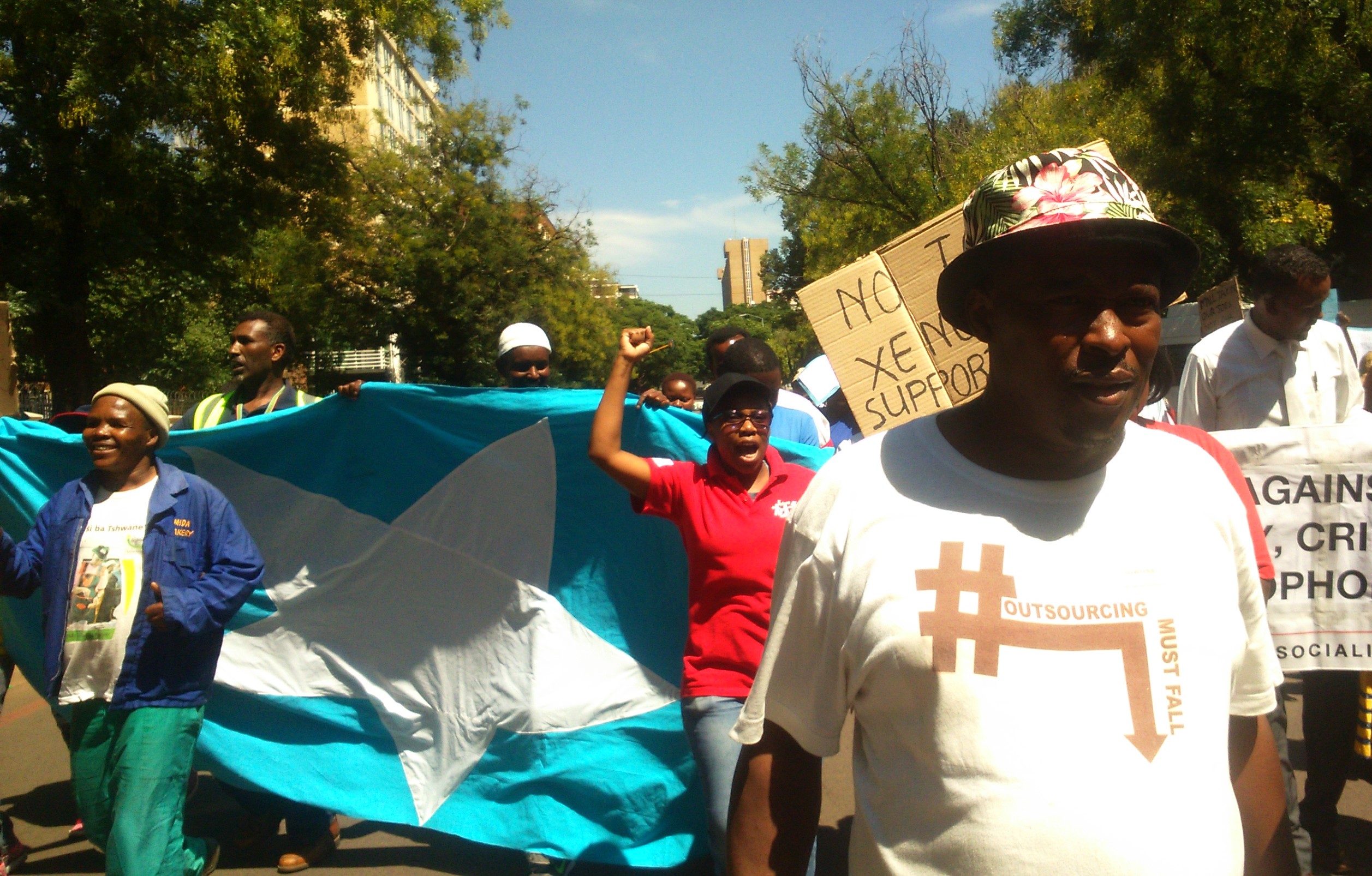
Busisiwe Managa, a 27-year-old South African, works very closely with refugees at Future Families, a non-profit organisation based in Sunnyside. She was at the march to show support for her colleague, Collette Bisimwa, a 40-year-old political refugee from the Congo. “I don’t like [xenophobia] at all. I mean we’re Africans, we’re all human beings. It doesn’t matter which country are you from, but we’re all human beings at the end of the day and we need each other,†Managa said.

Bisimwa fled the Congo with her four children after her husband, an opposition politician, was detained by the Congolese government. Some of his colleagues were killed because they were accused of plotting to overthrow ‘Kabila the Father’.
“For five days I couldn’t find him. So we had to pay some ransom to some people to let him go. So when he left jail I was in hospital with a baby. So he had to leave the country.â€
Bisimwa heard from a family member that he had fled to Tanzania. She had to wait for three months before she could meet her husband there. They fled to South Africa two years later because people involved in Tanzanian politics wanted him to join them.
The manicured lawns of Burgers Park, Pretoria, was the starting point of the march. “[W]e decided to organise this march simply because we wanted to correct the image of South Africa, continentally and internationally, because currently South Africa is being viewed as a xenophobic country,†explained Ncalo. They planned to march to the Union Buildings to hand over a memorandum of their demands.
The march headed to the Union Buildings. The streets resonated with struggle songs. There were displays of solidarity between South Africans and immigrants from all over Africa.
#Againstxenophobia marchers singing Viva Africa! pic.twitter.com/WCRGx1eU2L
— Nolwandle (@N_Vishuddha) March 9, 2017
Despite Mohamed Kafi, a self-employed Somali refugee, experiencing xenophobic violence, he doesn’t believe that all South Africans are hateful towards immigrants. “[F]ew [as] five percent … of them are xenophobic,†he told the Daily Vox. He believes that the anger communities are displaying towards them should be directed towards the government, “not towards foreign nationals who came to seek refuge here.â€
“It hurts sometimes when you are called those names – makwerekwere – but you also tell yourself that’s a human nature,†Bisimwa said. She doesn’t experience xenophobia in her workplace but is confronted with it when she’s on the street.
When the march reached the Union Buildings, the crowd was still energetic, unabated by the heat. The CCAX approached the ClearVu Invisible wall. A squad of police officers stood guard.
Ncalo, with their memorandum in hand, requested that an official come down to receive their list of demands.
#MarchAgainstXenophobia memorandum pic.twitter.com/R4i7IHMh0G
— Nolwandle (@N_Vishuddha) March 9, 2017
They were told to wait.
The energy of the crowd did not falter while waiting to hear if an official would meet them. Ncalo returned with bad news: the government didn’t want to receive the memorandum.
The CCAX believes the fact that xenophobic violence is still being perpetrated is a sign that government hasn’t addressed it. “I must be honest with you. The government has not shifted an inch. They haven’t done anything to address the question of xenophobia because if they have addressed it, really we wouldn’t be sitting here organising the marches.â€
The rejection of their voices did not silence them. The wilful ignorance of the government did not discourage them. They will be continuing the fight against xenophobia and the social problems facing all those living in South Africa.
The CCAX is not deterred by this first hurdle. They agreed there and then that they will regroup and come up with another plan. They decided that, because they are being ignored, they will do something that is hard to ignore: blockade the roads.

